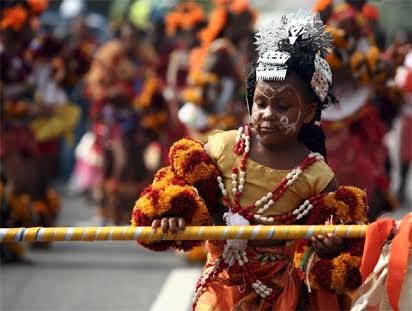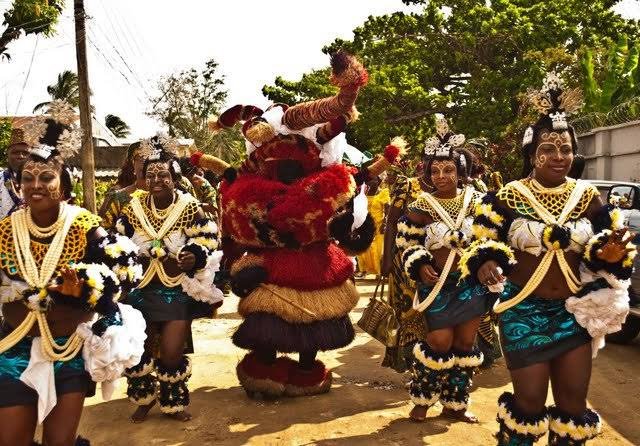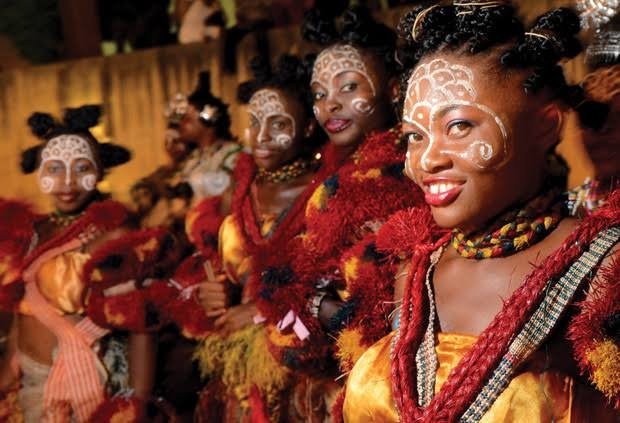The Efik People: History, beliefs, cultures and traditions

In this article, Platinumtimes.ng explores a brief history and facts about the Efik ethnic group
The Efik, also called the “Calabar People” are an ethnic group found in Cross River and Akwa Ibom State, Nigeria with a population of about 725,600 people. They speak the Efik language and share boundaries with the Republic of Cameroon, they are known for their hospitality and rich cultural heritage.
History and Location
The name “Efik”i literally means “Oppressor”. It is believed that the Efiks had disagreements with the ibibios during their sojourn at Uruan. They refer to themselves as Efik Eburutu, Ifa Ibom, Eburutu and Iboku. The Efik language also borrows words from other ethnic groups such as Balondo, Oron, Efut, Okoyong, Efiat and Ekoi (Qua).
History has it that the Efiks first settled at Ibom in the present day Arochukwu before migrating to Uruan.
Majority of the Efiks are found in Calabar, before 1905, Old Calabar was a term used to describe the Efik settlements of Duke Town, Creek Town, Old town, Cobham town, Henshaw town, Adiabo and Mbiabo (consisting of Mbiabo edere, Mbiabo Ikot Offiong and Mbiabo Ikoneto).
Efik society is made of various clans formally known as “Esien Efik itiaba” (English: Seven clans of Efik) and later known in the 21st century as “Esien Efik Duopeba” (English: Twelve clans of Efik). The original seven clans are scattered between Cross River state and Akwa Ibom state and consist of Iboku (Duke town, Henshaw town, Creek town and Cobham town), Obutong, Adiabo, Mbiabo (Mbiabo Edere, Mbiabo Ikot Offiong, Mbiabo Ikoneto), Enwang, Usukakpa and Abayen.

Modern Efik society is made of people of diverse origin because due to the rise of Calabar as a commercial centre since the 18th century, Efik settlements experienced a high rate of inward migration consisting of Sierra Leoneans, Lebanese, Cameroonians, Jamaicans and several other communities. Kiong and Efut are some ethnic groups that are closely related to the Efiks.
Children born of Efik maternal descent are still regarded as Efiks and are entitled to a quota of the family’s inheritance.
Traditional Occupation
During the precolonial era, the Efiks were greatly involved in slave trade where they acted as slave traders and middlemen between the local slave traders and the Europeans. After the decline of the slave trade, the Efik ventured into exportation of palm oil and other trading items like rubber, ivory, barwood and redwood.
Beliefs and Traditions
The Efiks believe in a supreme being called Abasi or Abasi Ibom meaning the almighty God that lives in the sky, he is believed to be the source of life and the creator of all things. Today, the Efiks worship Abasi on Sunday(the first day of the week).
The Efiks also believe in water spirits or deities known as Ndem which are believed to mainly reside in the water.
Some traditional beliefs of the Efiks are making sacrifices to their deities for appeasement, pouring libations during ceremonies and festivals using palm wine(Mmin Efik).
Festivals and Ceremonies
Festivals performed by the Efiks include; Ndok and Usukabia. Ndok is a biennial purgation festival held around December to drive away evil spirits from the land.
Usukabia was the ceremony of first partaking of new yams in the year, the festival occurred at the beginning of the harvest season. These festivals are accompanied by musics, dances(ekombi dance) and masquerade displays.
Ceremonies in the Efik land include coronation,child naming, marriage.
Prior to the marriage ceremony, traditions like the fattening room is observed. This is an interesting cultural feature where maidens are overfed, massaged and made to sleep for hours to become the perfect robust bride. It’s an all-around training and beauty therapy carried out over a period of time to prepare a lady for marriage and motherhood.
Traditional delicacies
Being known for their hospitality, the Efiks have lots of appetizing delicacies,they include; Ekpang nkukwo, Edikang Ikong, Afia efere, Anyan Ekpang, Afang soup and several others. Before the introduction of modern seasonings such as maggi, crayfish were used to make meals spicier. Many Efik meals are made with yams such as Usuñ abia, Iwụk abia, Afia abia, Ọsọbọ abia, Edifrai abia and Ọfọp abia. The Efik also manufacture a number of beverages such as Mmịn Efik (Palm wine), Ufọfọp (Native gin), Lemongrass tea (Nnyannyaña), and Mmịn Eyop (Eyop wine). These delicacies are served during festivals and Ceremonies in the Efik land.
Secret societies
societies aided in maintaining of law and order at Old Calabar. Among these secret societies were Ekpe, Obon and Nsibidi. It is believed that the Ekpe masquerade was used to convert the early Efiks to Christianity.Efik Traditional dresses.

Traditional dresses
Different types of dresses are worn by the Efik people, they are; Ọnyọnyọ, over the years, the Onyonyo dress has been modified and given what is regarded as a dignified African look. , Ọnyọnyọ is worn on various occasions such as weddings and traditional events by the Efik women. The dress is often worn with ornaments such as necklaces and earrings made of coral beads. During weddings, the bride wears at least two different Ọnyọnyọ. The traditional attire for men usually consists of a white long-sleeved shirt, a long broad soft neckerchief or scarf of costly material (Efik: Ọkpọmkpọm) and a wrapper tied around the waist (Efik: Usobo).
